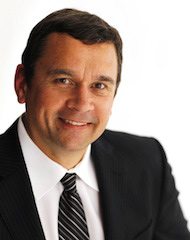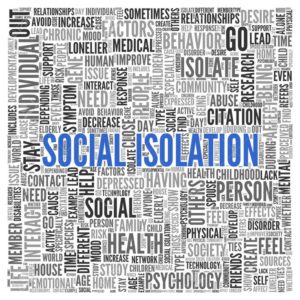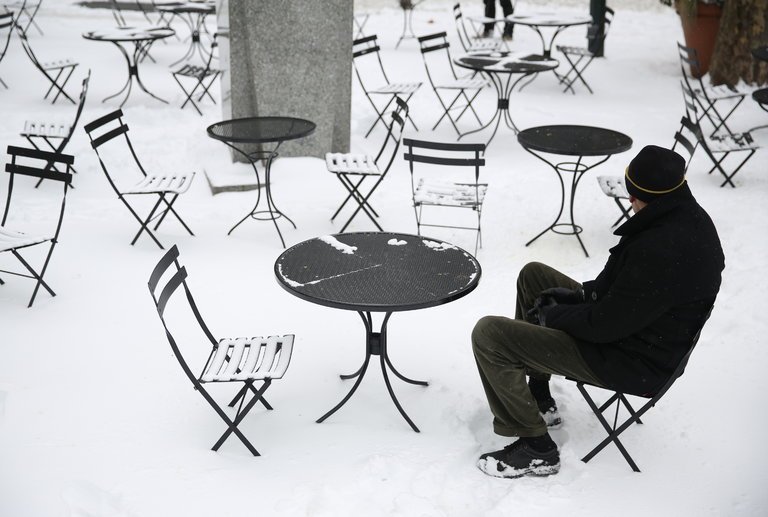More information, services and programs are needed to help seniors deal with the issue
By Mike Klassen
I don’t know what it feels like to be elderly and socially isolated, but a new report published by the U.S. Senate Aging Committee warns that if we don’t do something about this condition the costs will be potentially enormous. Canada’s National Seniors Council reached similar conclusions in a 2014 study.
A Globe and Mail report calls social isolation a “public health crisis in waiting.”

So what can be done about the threat posed by social isolation? I think we first have to become more aware of its presence.
Since I ran as a city council candidate back in 2011, I have been acutely aware of the perils of elderly isolation within our city. I recall knocking on more than a few doors where the resident was alone, usually widowed, and cognitively impaired. There are studies that indicate that social isolation is driving increasing rates of dementia, which in the end we all pay for through our health care system.
High real estate prices here are also straining the relationships between family members and elderly loved ones. Anecdotally, there are countless reports of adult children attempting to get their hands on the parent’s home.
The Vancouver Courier recently reported on the struggles seniors are facing from skyrocketing rents. While some are speaking out, most quietly struggle on their own, scrimping in order to get by.
Late last month, when Vancouver’s skies were clear and the days were warm and long, a handful of volunteers in my community helped organize our traditional neighbourhood barbeque.
As I was leaving the event, I saw the face of social isolation yet again. An elderly lady who lived across the street had helped herself to a hamburger and coleslaw, but sat alone out of view of the neighbours assembled nearby.
I stopped to speak with her, and quickly learned that her husband had passed away. I thought the loss was recent. No, she said. He had been gone for six years.
The irony was not lost on me that even when bringing people together, there are those among us who remain alone.

Kristine Theurer is a PhD candidate at the University of British Columbia who has studied social isolation for 15 years. In a blog post she writes, “in a healthy community we help our families, our neighbors, and those less fortunate. We build bridges, cities and entire countries together.
“The very fabric of society is dependent on helping one another.”
Theurer posits that in order to overcome the societal ravages of social isolation, we need to invest in new mentorship and peer support programs to give more of us an opportunity to contribute to our communities. She describes how pilot programs have shown success in the care homes they have been tried.
Both urban and rural communities will continue to struggle as social isolation takes its toll. And, as the National Seniors Council report points out, we lose “unquantifiable wealth” when older adults cannot bring their experience and wisdom to our families, neighbourhoods and communities.
The council suggests a number of measures in response.
First, we must raise public awareness of the social isolation seniors face. Articles like this one can only scratch the surface — so we need more public discussion.
Second, we must promote improved access to information, services and programs for seniors. According to the Pew Research Centre, some of the largest growth on social media use is with the seniors population. Up to one-third are now accessing some social media program.
We must build the collective capacity of organizations to address social isolation among seniors through social innovation. Initiatives such as Kristine Theurer’s, for example.
Finally, says the council, our governments and universities should prioritize more research on the subject.
If there was any city that can reverse the trend and reduce the rates of social isolation, I think it is Vancouver. We are a city built around access to our outdoors, on our seawalls and our parks. We need to embrace the outdoors for walking clubs and jogging groups that will stimulate social connections and maintain healthy minds and bodies.
We must also plan communities here and across Canada that enable connections. How we can accomplish that, I will discuss in a follow up column.
— Originally published by Vancouver Courier newspaper
CKNW Radio Interview (September 16th)
https://soundcloud.com/bc-care-providers-583453035/jill-bennett-show-on-cknw-interview-with-mike-klassen-on-social-isolation





